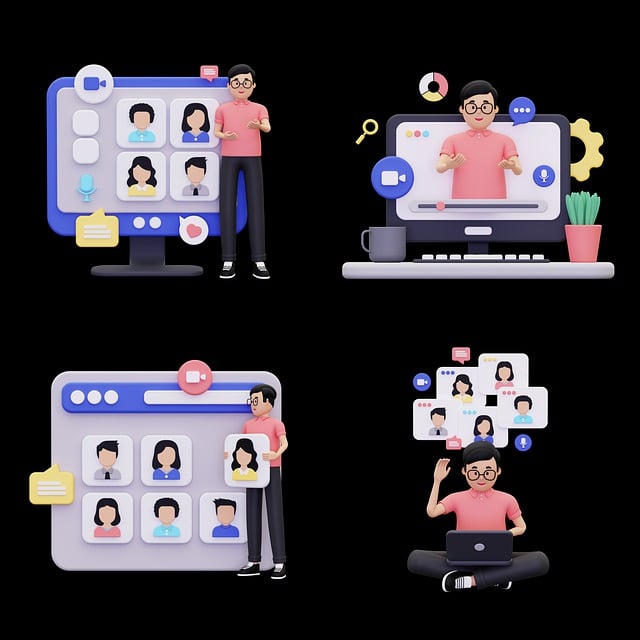In today's digital age, where sensitive data is frequently shared online, Private Internet Access (PIA) serves as a crucial tool for ensuring privacy and security for IT professionals and academic researchers. PIA offers advanced encryption protocols to create anonymous, secure connections, safeguarding users' digital footprints and preventing unauthorized tracking. This is especially valuable for researchers accessing rare resources or conducting confidential work, fostering innovation and academic freedom. By masking IP addresses, PIA enables professionals to browse safely while maintaining the integrity of their online activities and data privacy.
In today’s digital landscape, IT professionals and academic researchers face unique challenges when it comes to web browsing. With increasing online surveillance and data collection, maintaining privacy and anonymity is paramount. This article explores the importance of anonymous web browsing, focusing on how tools like Private Internet Access (PIA) can fortify security and protect sensitive information. We’ll guide you through best practices to ensure a secure and private online experience for academic researchers and tech experts alike.
- Understanding the Need for Anonymity in Web Browsing
- The Role of Private Internet Access (PIA) for Security and Privacy
- How PIA Enables Secure and Anonymous Research Activities
- Best Practices and Tips for Maintaining Anonymity Online
Understanding the Need for Anonymity in Web Browsing

In today’s digital era, where vast amounts of sensitive data are exchanged online, anonymous web browsing has become a critical aspect of privacy for IT professionals and academic researchers alike. While public internet access offers convenience, it also poses significant risks to personal and professional security. Many users conduct research, collaborate on projects, or share confidential information that requires a high level of discretion.
Utilizing tools like Private Internet Access (PIA) is essential for maintaining anonymity and securing online interactions. PIA employs advanced encryption protocols to safeguard data from prying eyes, ensuring that even if traffic is intercepted, the content remains unreadable. This is particularly vital for researchers accessing academic databases or engaging in sensitive discussions, as it prevents unauthorized tracking and preserves the integrity of their work.
The Role of Private Internet Access (PIA) for Security and Privacy

In the digital age, where online activities are integral to professional work, maintaining privacy and security has become a paramount concern, especially for IT professionals dealing with sensitive data. Private Internet Access (PIA) stands as a robust tool tailored to address these issues. It offers encrypted VPN services that create an anonymous layer over internet traffic, safeguarding users’ digital footprints. This is particularly beneficial for academic researchers navigating the web for rare or controversial resources, ensuring their inquiries remain confidential and protecting them from potential online surveillance.
By providing secure connections across various platforms, PIA enables professionals to access networks remotely without compromising privacy. Its advanced encryption protocols ensure that data transmitted over the internet remains unreadable to unauthorized parties, be it employers monitoring employee activities or third-party trackers trying to build user profiles. This level of security is crucial for IT workers handling confidential corporate information and academic researchers exploring sensitive research topics, ensuring their online interactions are as private as possible.
How PIA Enables Secure and Anonymous Research Activities

Private Internet Access (PIA) is a game-changer for IT professionals and academic researchers who prioritize privacy and anonymity online. It offers a secure network that masks users’ IP addresses, ensuring their digital footprint remains hidden from prying eyes. This is particularly crucial when conducting sensitive research or accessing restricted resources.
With PIA, researchers can seamlessly navigate the web without revealing their identities, allowing them to explore diverse topics freely. The advanced encryption protocols ensure that all data transmitted over the network is protected, providing a safe environment for sharing and exchanging confidential information. This level of security enables professionals to engage in anonymous research activities, fostering innovation and academic freedom.
Best Practices and Tips for Maintaining Anonymity Online

Maintaining anonymity online is a skill crucial for IT professionals and academic researchers alike, especially when accessing sensitive data or researching controversial topics. A recommended practice is to utilize Virtual Private Networks (VPNs), such as Private Internet Access, which encrypt internet traffic, hiding your IP address and location from websites and third-party trackers. This ensures that your online activities remain private and anonymous.
Additional tips include using a trusted search engine that respects user privacy, browsing in incognito mode to prevent browser history and cookies from being saved, and regularly clearing cached data. Employing strong, unique passwords for every account and enabling two-factor authentication adds an extra layer of security. Using Tor, a decentralized network, can further enhance anonymity by routing your internet traffic through multiple servers, making it harder to trace back to the original user.
For IT professionals, especially academic researchers, maintaining online anonymity is a cornerstone of secure and ethical digital activities. By leveraging tools like Private Internet Access (PIA), individuals can protect their privacy while conducting sensitive research. Implementing best practices ensures that their web browsing remains confidential, fostering an environment conducive to unfettered inquiry and innovation without compromising data security.
